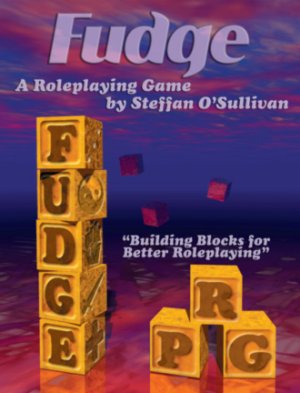So, here's my first draft for using "Flavor text" magic for Savage Worlds. Let me know what you think about it.
What is magic? When you answer that question you define how you want your magic system to be. I'm considering the following alternative: magic is simply flavor text.
Why do that? Because, depending on how you treat magic, that's what happens. Let's see some examples:
-The sorcerer casts a spell to hit a foe at range.
-The sorcerer creates a magic blade and strikes his enemy.
-The sorcerer charms the guard into letting him pass.
-The sorcerer opens a lock by touching it with his wand.
-The sorcerer levitates over a chasm to reach the other side.
-The sorcerer shapechanges himself into a wolf.
Picture the scenes above. Done that? Good. Now consider this:
-The warrior hits a foe with his bow.
-The barbarian strikes his enemy with his might axe.
-The cunning maid uses her appeal to convince the guard to let her pass.
-The rogue opens a lock using his tools.
-The acrobat tosses a rope to the other side of a chasm and uses it to cross it.
-The sorcerer shapechanges himself into a wolf.
Except for the last example, everything the sorcerer did was just something another competent hero could do, only using magic! What was magic in those examples? Just flavor text. Just a catch-all term for the action.
That said, how to deal with those cases (I'll let the last example for later)? How to codify the system?
First of all, in order to use sorcery (magic, conjurations, whatever), one must have an Arcane Background: Sorcery (or something like that) and a Spellcasting skill. Rename the AB and the skill as needed.
So, how will this work? Simple.
When in combat, the sorcerer may use his Spellcasting skill instead Fighting/Throwing/Shooting to hit and enemy. Magis is just a trapping for his attack and, while he may describe the magical effects of his actions, it's simply flavor text. Damage becomes Smarts (or Spirit, depending on your approach) plus Spellcasting. Sure, he can't be disarmed or spend his last "arrow", since everything is created by magic... Or you can use the following rule:
When using magic, if the caster rolls TWO ACES in any of his dice (skill or wild), the spell cast drained too much of his energy and it was the last his resolve could muster for now... Additional castings will result in 2d6 damage. If he spends a few hours resting/meditating/fasting he may cast spells without this problem once again (until he again rolls two aces).
What about using magic outside combat in order to perform tasks other heroes could do in mundane ways? Simply: Spellcasting skill roll -- magic is just flavor text and the risk is the same as above. -- Just consider this: if a rogue picking a lock would take 10 minutes to be successful, a sorcerer using magic to open that lock would need a 10-minute casting time (chanting, tracing runes) to conjure the spell. Remember: this is just flavor text!
So, magic is flexible? Yes. But there's always a catch. There's the stress mentioned above, and more: Rolling a 1 in the Spellcasting die may result in severe backlash. A random table could have interesting results here.
Ok, I got it. Magic is flexible, is considered flavor text, and have a few risks... But what about attempting real magic effects, like the shapechanging you mentioned?
I'm glad you asked that. Again, this is simple. Remember those bennies you've hoarded for being a great player, allowing everyone to have fun and creating memorable scenes? Use them!
A benny can be spent by a Sorcerer in order to conjure real magic. It's simply a way to have narrative control of the scene for a moment - i.e., just another flavor text, only more powerful.
Okay, I think this is it. If you have any questions or comments, please join the discussion. Also, I'd love to see your random backlash tables.









